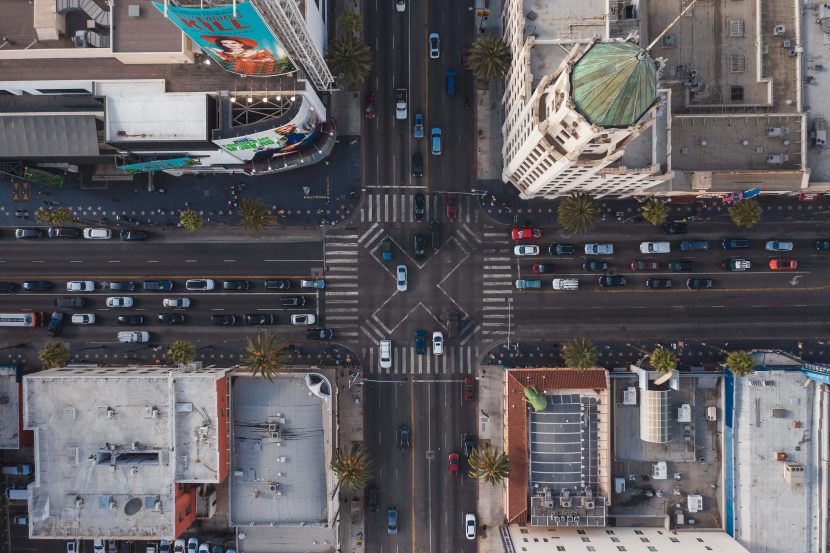The big secret to sleeping on a busy, noisy street is getting used to it.
The smaller secret is how to deal with occasional spikes in noise.
That’s it.
Getting used to traffic noise and the occasional spikes like blaring car horns can happen for almost anyone. Eventually. When they go out to the country, they have the opposite problem. It’s too quiet. They then can’t sleep because all they hear is the wind fluttering through the trees, frogs, and crickets. Traffic noise has become restful to them. Traffic and other urban noises remind them of home.
Here’s a link to City Traffic Sounds for Sleep for those people. Currently, it has over 1.8 million plays.
I’m not sure if an ambulance or police cruiser with a blaring siren goes by at any point.
That would be a spike in the noise.
Getting used to sleeping next to a noisy or busy street primarily consists of adaptability to change.
Noise spikes
One problem with sleeping near a busy street is noise spikes, to borrow a term from the worlds of recording and sensory equipment. Sudden increases in the level of noise may cause you to wake up. It’s easier to get used to hearing a usual drone.
One home I owned was on a street that was only busy at rush hour. That means it was on people’s way to work, school, and many of their errands. Most people work during the day; one didn’t. He’d leave work at midnight every night. That meant he drove by my house at 12:05 a.m. Monday through Friday. He’d blast his favorite heavy metal band, surely waking up most of the people who were already in bed.
You never really get used to that, and you’ll never know about that nightly routine until you live in a home. The only thing to do is realize that all is right with the world, “Heavy Metal Stranger” has finished another shift and is going home. He’ll pass right by.

Not every spike in noise is random and predictable, however. In some places, a truck with a bullhorn on it will drive by, encouraging you to vote for some candidate in the next election. In others, two young men will challenge each other to a drag race outside of the place you’re trying to sleep. Sometimes people from all over the city will come to a location never your and hold a party. Sometimes a team will become suddenly popular, and fans will walk by your apartment, setting off air horns. Then, too, don’t forget about protests. Some places are people magnets. They come from all over the city to try to change one injustice or another.
All you want to do is sleep.
Sometimes you’ve got to.
You’re more likely to sleep through it if you can dampen the noise in all of these situations.
Whether you own or rent will impact what you can do. If you rent and make structural changes, then your landlord may have the legal right to ask you to put things back as they were.
Temporary stay
If you’ve rented a hotel room or other temporary quarters on a busy street and are bothered by the noise, the best solution is to locate a pair of earplugs. These can be difficult to tolerate if your sinuses are congested. If you can clear your sinuses with a decongestant, a humidifier, blowing your nose, or another way, it might make them easier to tolerate. The trouble is if your sinuses keep filling up. If they do, I’m sorry.
Can you find a pair of headphones then? The trouble with those comes if you want to turn one way or another (headphones designed for sleep are a whole different matter. They’re pretty comfortable even if you lay on your side).
It can be hard to get used to sleeping on a busy street in one night.
Try telling yourself it’s okay. The noise is natural for where you are. You’re safe. If you’re used to a calmer, quiet environment, you can feel like you’re in danger, even though you know you’re not, intellectually. Self-talk is a type of affirmation. It’s speaking to your subconscious, which is most likely what is telling you you’re not safe because there’s all of this noise. You’re on alert.
Of course, good luck convincing yourself with affirmations if you’re reacting to gunfire or explosions. In that case, assure yourself they’re not shooting at you.
Some cities have a non-emergency number where you can file a noise complaint, usually 311. Check if it’s available in your area and what the regulations are in your area.
Long-term stay
You can be ready for the next election, demonstration, or jacked-up truck with booming loudspeakers by making physical changes to your property, especially if you own it.
The best noise reduction measures involve structural changes like installing double-glazed windows. Sound-reducing shutters and blinds can also help. Sound-diminishing curtains and panels will help, too, to a lesser extent.
There is a thing called the flanking transmission of sound. This means noise gets around or through the weakest point. For example, take a case where the noise comes in through the windows more than the walls. If you installed double-glazed windows, more noise would come through the walls. To cancel out noise efficiently, you’d need to factor in how much it’s worth mitigating the weak points in the building.
Rearranging your furniture and moving your bed back away from the window to the quietest spot will help. You’d want to orient your head to the furthest point away from the outside wall.
Consider how much noise comes in from hallways or inside the building. That will help you find the best spot. It combines increasing distance (which reduces noise) and blocking the noise.
If you’re going to try earplugs to help you sleep, you might be best off with trying a soft, universal-fit earplug. Custom-fit earplugs will cancel out more noise than the universal-fit ones, but try the universal-fit ones first. However, keep in mind when you cancel out all noise, your inner ear will sometimes go to work producing its own ringing.
You’ll probably want to try two or three of these solutions. Their effect can be cumulative and help you get the full night’s sleep you crave.
For further reading:
Do you think living in a noisy location isn’t a big deal? Think again.
Also on the blog:
James Cobb RN, MSN, is an emergency department nurse and the founder of the Dream Recovery System. His goal is to provide his readers with simple, actionable ways to improve their health and maximize their quality of life.
Banner ads on the DRS contain affiliate links. If you click a link and make a purchase, we receive a small commission. All our opinions remain our own.
